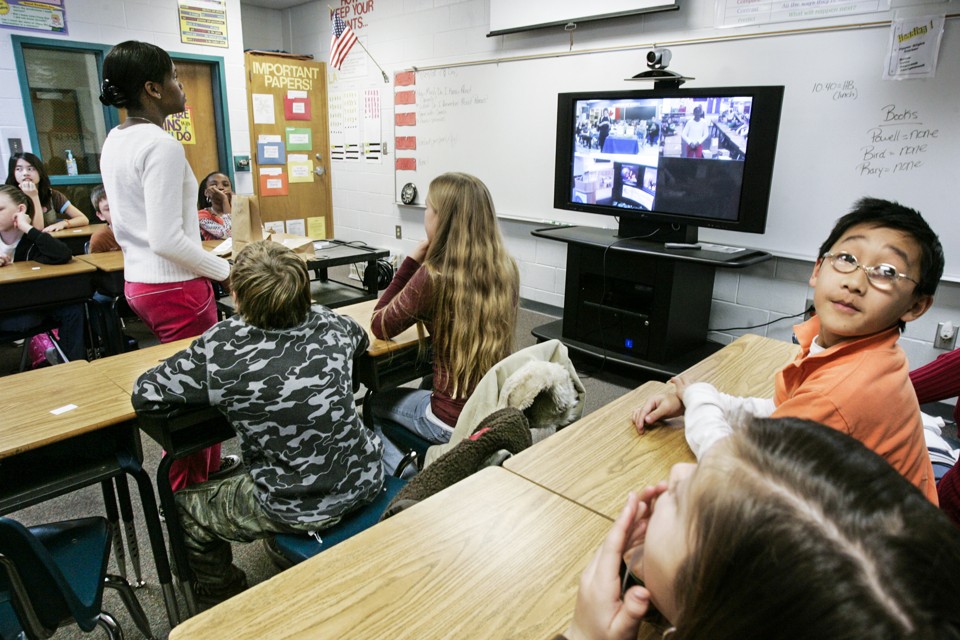IMPORTANT article from Atlantic magazine.... http://www.theatlantic.com/education/archive/2015/06/the-secret-power-of-moocs/396608/
Education
"The (Accidental) Power of MOOCs"
"Massive open online courses looked like they were on their way out—and then researchers discovered something curious about who’s participating.

Back in 2013, the New York Times columnist Thomas Friedman wrote that MOOCs—massive open online courses—were about to change everything:
Nothing has more potential to lift more people out of poverty—by providing them an affordable education to get a job or improve in the job they have. Nothing has more potential to unlock a billion more brains to solve the world’s biggest problems. And nothing has more potential to enable us to reimagine higher education ...
MOOCs have since lost their hype, undergoing flameouts and suffering from poor participation and competency rates. A University of Pennsylvania study of 1 million MOOC users who participated in 16 of the school’s Coursera classes, for example, found that only about half of the registrants viewed even a single online lecture and that the average completion rate was just 4 percent.
Even so, it may not be time to write them off. An unexplained phenomenon in early MOOC data, now illuminated by another recent study (this one from Harvard and MIT), could help the courses live up to the education-reform hype after all—but with a somewhat ironic twist. Perhaps one of the overlooked values in MOOCs is not in sharing Ivy League wisdom with the masses, but in teaching educators—and, in turn, improving traditional K-12 schools.
From the outset, analyses of MOOC students showed that enrollees were already overwhelmingly educated. According to various MOOC enrollment data, including that contained in the UPenn study, a majority of those registering for the free classes (between 70 and 80 percent) already had college degrees. That’s about double the rate of the U.S. population at large. And in other parts of the world—where free online college classes were envisioned as tools of social mobility—the portion of already-educated students was even more dramatic. Last year, a piece of commentary that ran in The Times cited a study showing that in countries such as Brazil, China, India, Russia, and South Africa—where just 5 percent of residents have college degrees—more than 80 percent of MOOC students had one.
Although there wasn’t a lot of hard research to support it, many analysts pegged the high percentage of already-degreed students in MOOCs to an interest in freshening up job skills. Meanwhile, some MOOC backers attributed the lack of degree-seekers in the free courses to limited broadband access among lower-income populations.
Then, earlier this year, Harvard and MIT released what’s ostensibly the largest study to date of MOOCs and their participants. The joint study examined 68 courses offered by the two institutions though the edX platform, covering 1.7 million participants and more than 1.1 billion “events”—what the study defines as each participant “click” recorded in the edX servers. The report not only confirmed that MOOC students tend to be college-educated, but it also demonstrated that a striking percentage of those students are educators themselves. “What jumped out for me was that ... as many as 39 percent of our learners [in MOOCs overall] are teachers,” said Isaac Chuang, one of the study’s lead researchers. In some of Harvard’s MOOCs, half the students were teachers. And in “Leaders of Learning”—a course out of its Graduate School of Education—a whopping two-thirds of participants identified as such.
This makes sense. Teachers devote their lives to the arts and sciences of sharing information and imparting skills. That they would voluntarily participate in an online-learning experience focusing on a field they already know isn’t that surprising; as practitioners of education, teachers may also have an interest in the processes and applications of MOOCs, studying how questions, assignments, and tests are handled in online teaching environments, for example. Nor is it surprising that teachers are interested in pedagogy—watching and learning how an applauded instructor delivers a lesson. Educators may want to see how an esteemed Harvard professor, for instance, teaches topics they cover in their own classrooms. Or they may want to appropriate the learning resources used in the MOOCs.
And if teachers are flocking to MOOCs to observe their more-accomplished colleagues or pick up new ideas to apply in their own classrooms, this trend could accelerate a needed renaissance in professional development for teachers.
Nationally, professional development—the process of keeping teachers up to date on subjects and teaching methods—is a costly and (arguably) futile endeavor. Every state requires some form of ongoing education for teachers; the U.S. Secretary of Education, Arne Duncan, has said the United States spends about $2.5 billion on it every year. “But when I say that to teachers they usually laugh or cry,” Duncan said. “They are not feeling it. We have to do better with professional-development money.”
And that’s probably an understatement: Teachers don’t seem to be “feeling” professional development at all. According to a 2009 study from the Center for Public Education, when asked about their experience in professional development, most of the teachers surveyed “reported that it was totally useless.”
No comments:
Post a Comment